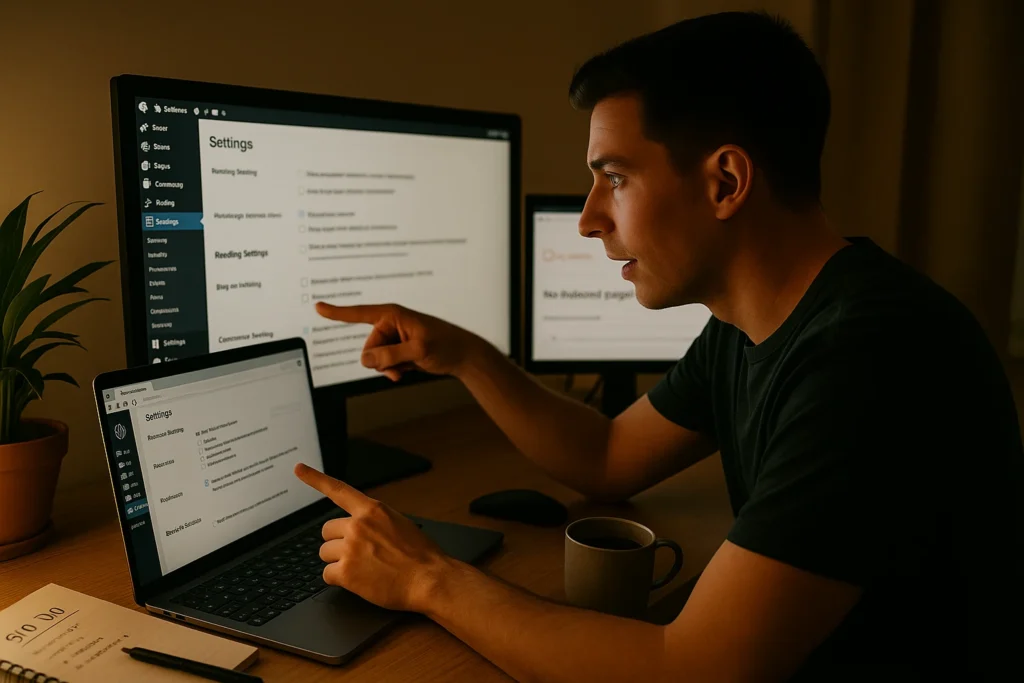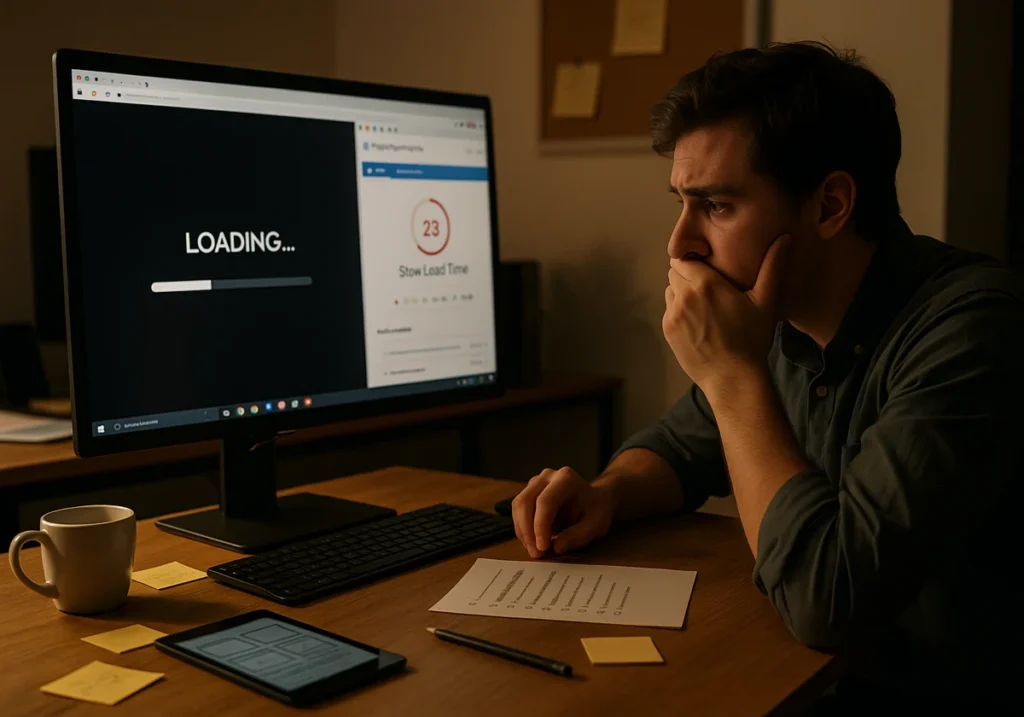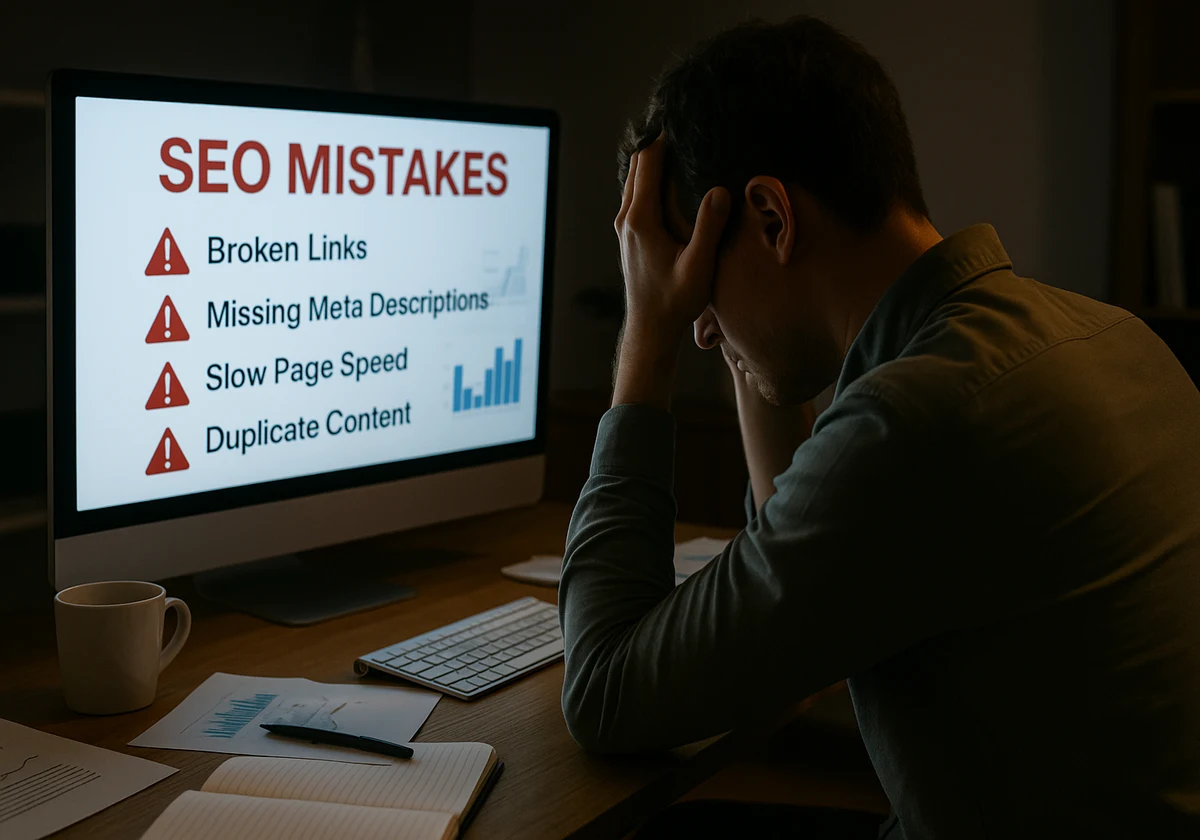Your WordPress site is sitting on page five of Google search results. Meanwhile, your competitor ranked on page one for the same keywords. You’ve done everything right: Installed Yoast SEO, written meta descriptions, and even added alt text to every image.
So what’s the problem? Well, Nothing’s wrong with what you’re doing. You’re simply missing a bigger puzzle.
Most search engine optimization advice online tells you to pile on more work. Add more content, build more links, optimize more pages. But here’s what nobody mentions: what if search engines can’t even find your WordPress site in the first place?
That’s the real issue killing most WordPress websites. However, the relief is, these WordPress SEO fixes take minutes, not months. Even no developer is required.
Ready to find what’s actually broken? Let’s dig in.
Search Engines Can’t Find Your WordPress Website

Before worrying about search rankings, make sure Google can actually see your WordPress site. Sounds basic, yet way more website owners miss this than you can imagine. You could have the best content in the world, but if search engines can’t crawl it, you’re invisible in Google search.
Check a few common reasons why your site can’t speak to Google Search Console.
1. That One Checkbox in Settings > Reading
Head to your WordPress dashboard right now. Click Settings, then Reading. See whether that little checkbox saying “Discourage search engines from indexing this site”
If it does, then you just found why search engines ignore your entire WordPress website.
Uncheck that box and save changes. Done in 30 seconds. Now search engines can finally discover your WordPress site.
2. Your Robots.txt Might Be Blocking Everything
While you’re at WordPress, check your robots.txt file by typing “yoursite.com/robots.txt” into your browser. You’ll see what search engines see when they try to crawl your WordPress website. If it says “Disallow: /” then you’re blocking Google search from reaching any of your pages.
Most SEO plugins like Yoast SEO or Rank Math let you edit this PHP file directly. Change that disallow rule or delete the robots.txt entirely. Problem solved in about two minutes.
Now search engines can actually reach your content and send you organic traffic.
3. No Sitemap = No Roadmap for Google
An XML sitemap lists every page on your WordPress site that search engines should index. Google search uses it to crawl your content faster.
If your site is missing an XML sitemap, then install an SEO plugin. Both Yoast SEO and Rank Math generate XML sitemaps automatically. Then head to Google Search Console and submit that sitemap URL so search engines know exactly where to look.
Type “yoursite.com/sitemap.xml” into your browser to verify it works. Once your XML sitemap is live in Google Search Console, search engines index your WordPress website much faster.
Your Listings in Search Results Look Terrible
Great content means nothing if your listing in Google’s search results looks boring. Most people scroll right past. You rank on page one, but your click-through rate stays terrible. Sound familiar?
Here’s why. Auto-generated meta descriptions make your search results look lazy. They pull random sentences from your site’s content. Write custom meta descriptions that actually make people want to click through from Google search results.
Use your focus keyword naturally, and keep your meta description under 155 characters. In the case of titles, Google cuts off those that are too long. That’s why keep the title under 60 characters and front-load your main keyword.
The Yoast SEO plugin shows you exactly how your listing will appear in Google’s search results before you hit publish. You can see the preview of your title tag and meta description. If there is a problem, you can edit and save them.
Through our experience with small business SEO at Fiddlers Convention, we’ve seen a simple meta description rewrite increase clicks from search results by 40% in just two weeks.
Page Speed Is Killing Your Rankings

A slow WordPress site destroys your SEO before anything else can work. Over half of mobile users abandon sites that take longer than 3 seconds to load, and Google uses page loading speed as a ranking factor. (That’s not just some technical issue; it’s costing you customers.)
Run PageSpeed Insights right now and type in your URL. Seeing Red scores? It means you’re losing organic traffic. But the relief is that most speed issues on WordPress websites have one-click solutions.
Solve the problem with a caching plugin. WP Rocket handles caching automatically once you activate it on your WordPress site.
Next, compress your images before uploading them or let Imagify handle it automatically. Because large images slow down many WordPress themes.
Finally, delete unused plugins that slow down your WordPress website for no reason.
WordPress SEO Fixes Most Guides Skip
Beyond the basics, a few sneaky issues quietly destroy your site’s SEO every single day. Nobody talks about these WordPress SEO fixes much, but they cost you organic traffic.
Let me walk you through fixes that take minutes but deliver lasting results for your search rankings.
What’s Broken | The Fix | Time Needed (Approx.) |
Ugly permalink structure | Switch to “Post name” in Settings > Permalinks | 1 minute |
Massive uncompressed images | Use Imagify or compress before uploading | 5 minutes |
Zero internal links | Link to 2-3 relevant pages in every article | 2 minutes per post |
Duplicate content from archives | Set category/tag pages to “noindex” in the SEO plugin | 3 minutes |
First, check your URL structure under Settings > Permalinks. If you see URLs like “yoursite.com/?p=123,” you need to change them to clean canonical URLs like “yoursite.com/wordpress-seo-fixes”. It helps search engines understand what each page covers.
Google search will thank you with better rankings for your target keywords if you switch to “Post name” in your URL structure.
Next, fix your internal links because they spread link juice throughout your WordPress site. Link to 2-3 relevant pages using descriptive anchor text instead of “click here.” This helps visitors click your WordPress website instead of bouncing to other sites.
Finally, many WordPress themes add duplicate content. For example, archive pages, category pages, and tag pages often show the same content as your blog page. Use your SEO plugin to set some of these to “noindex” so only your best pages appear in Google’s index and search results.
Local SEO Through Google Business Profile
Someone near you is searching for your service right now. Do you show up in that map range at the top of Google’s search results?
If not, you’re losing customers to competitors who have claimed their Google Business profile. The local range appears above regular organic traffic for location-based search queries.
Your Google Business profile isn’t optional for local SEO anymore. That’s why complete every field: business name, address, phone, hours, categories, and services. Add real photos of your location because listings with photos get 42% more requests for directions.
Respond to reviews, both good and bad. Post weekly updates to signal your small business is active.
And don’t forget to add your address in the footer and contact page with proper schema markup.

Quick Wins You Can Implement Right Now
You might be wondering where to start with all this. Good question.
Well, you don’t need to fix your entire WordPress website at once. Start with these five WordPress SEO fixes today, and you’ll see movement in search rankings within weeks.
Here’s your action plan:
- Check Settings > Reading: If you see that box is checked, uncheck it (30 seconds)
- Install Rank Math or another SEO plugin: The setup wizard walks you through everything (10 minutes)
- Run PageSpeed Insights: Focus on image compression and your worst 3 problems (15 minutes)
- Rewrite your homepage meta description: Write something that makes people want to click (5 minutes)
- Submit your XML sitemap: One-time thing in Google Search Console (5 minutes)
Pick two items from this list right now. Do them before you close this tab. And momentum beats perfection every single time for improving your SEO performance.
You’ll feel the difference in your confidence before you see it in Google Search Console analytics. Seriously, isn’t this amazing how simple these WordPress SEO fixes actually are once you know what to look for?
Wrapping It Up
Have you fixed even half of these issues on your WordPress website? Congratulations! You’re already ahead of most WordPress sites out there. (Pat yourself on the back for an amazing try.)
But your hard work will show results in four to six weeks, not overnight.
Your WordPress website already has what it takes to rank in Google search. So just wait and watch the improvement.
These WordPress SEO fixes clear the path and remove the roadblocks holding you back from the organic traffic you deserve. Need help implementing these fixes for your small business? Contact us for a site audit and personalized recommendations for your small business SEO strategy.
